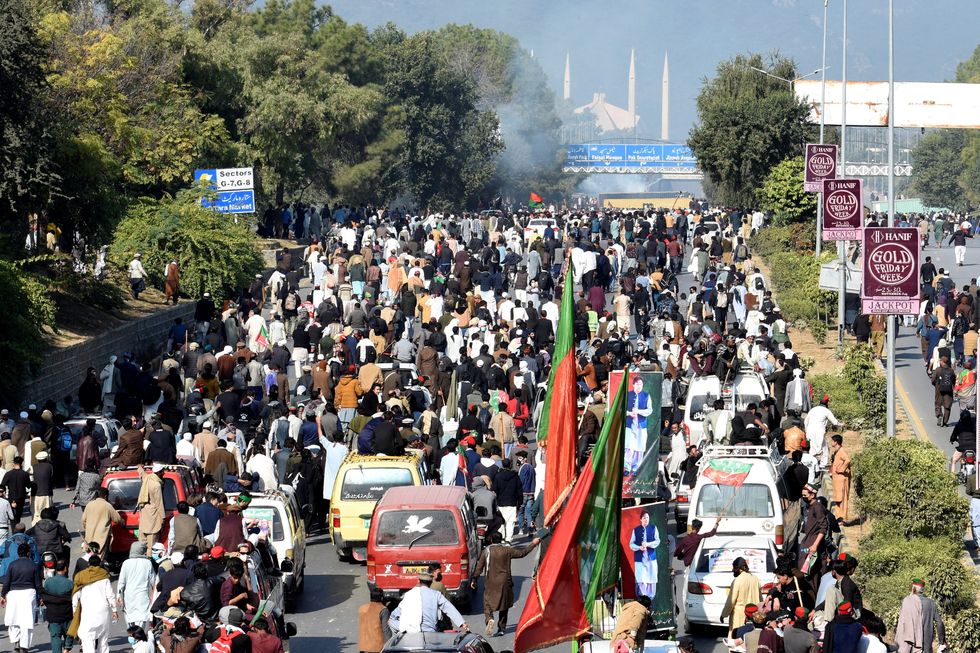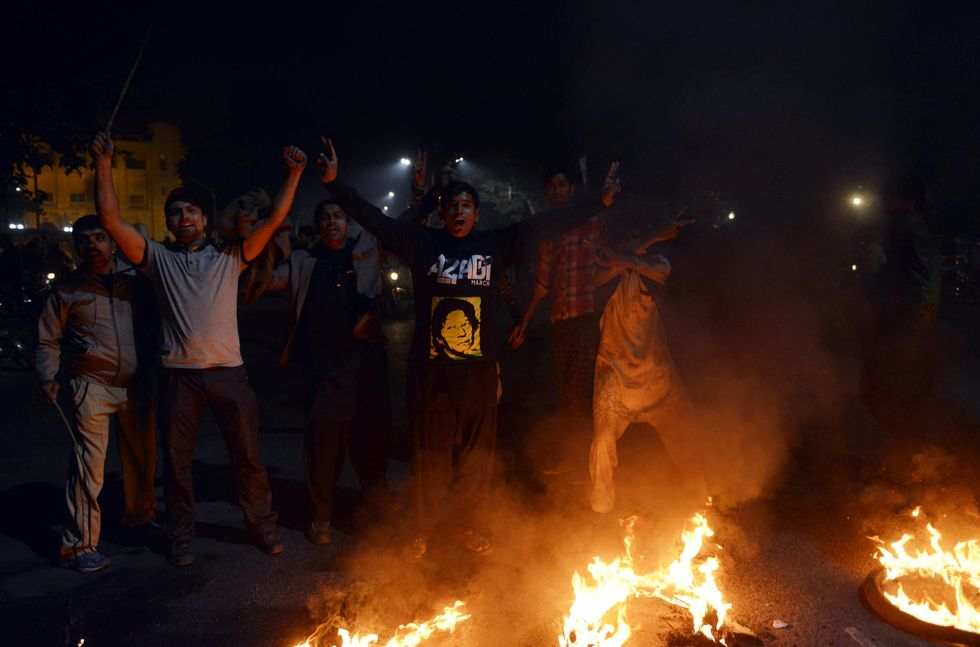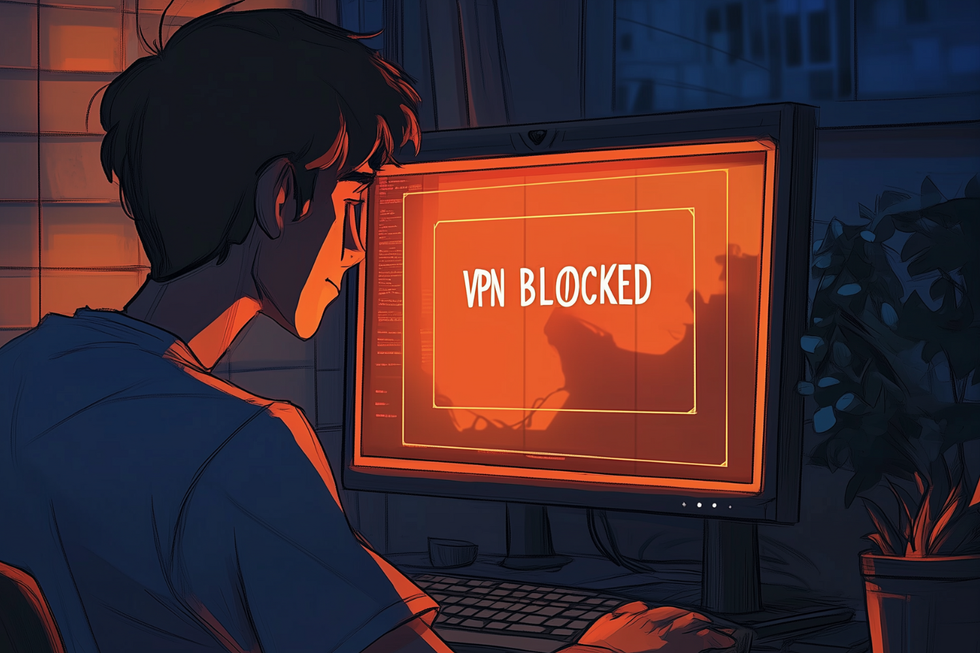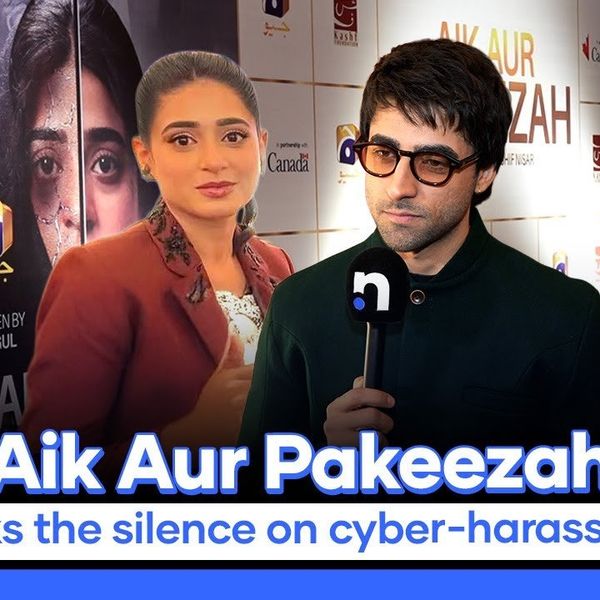Pakistan web controls quash dissent and potential
Digital controls target supporters of jailed former PM Imran Khan, who mobilize protests both online and offline
AFP
News Agency Partner
AFP is a renowned international news agency, delivering comprehensive and reliable reporting on global events, trends, and issues.

Digital controls target supporters of jailed former PM Imran Khan, who mobilize protests both online and offline
Over 2.4 million freelancers risk losing access to tools essential for international remote work due to VPN restrictions.
Authorities claim internet cuts are necessary to prevent misuse, such as residents sharing Wi-Fi with protesters.
Social media site X has been down since February, internet outages are becoming more common and severe, and web tools used to evade state censorship will soon be banned for personal use.
Analysts say the measures are ramping up as Islamabad is being challenged by supporters of jailed ex-prime minister Imran Khan, who commands the loyalty of legions of young and web-savvy Pakistanis.
Khan was barred from standing in February polls which his followers say were rigged, and they have defied a crackdown both online and offline to stage unruly protests calling for his release.
During clashes in the capital this week between security forces and over 10,000 Khan supporters, authorities blocked mobile data in much of the city and also severed home internet in some areas, citing security fears.

"Censorship and surveillance we are seeing right now in Pakistan is unprecedented and very sophisticated," said Pakistani digital rights activist Usama Khilji.
"It's creating frustration in society," he told AFP.
Wasting time
Internet outages are becoming more frequent and severe in Pakistan, with the government set to ban personal use of tools that bypass censorship. Social media platform X has been inaccessible since February, reflecting a growing clampdown on digital dissent.
Analysts say these measures have intensified as Islamabad faces unrest from supporters of jailed former Prime Minister Imran Khan, who retains the loyalty of a young, tech-savvy base. Barred from running in February elections, Khan has galvanized protests online and offline, challenging the government despite a sweeping crackdown.
This week, as more than 10,000 Khan supporters clashed with security forces in the capital, authorities blocked mobile data across large parts of the city and cut home internet in some areas, citing security concerns.

“Censorship and surveillance in Pakistan are unprecedented and very sophisticated,” said Usama Khilji, a Pakistani digital rights activist. “It’s creating frustration in society.”
Mobile internet blackouts have frequently accompanied protests by Khan’s Pakistan Tehreek-e-Insaf (PTI) party since his 2022 ouster. However, shutting down home connections marks an escalation.
The Interior Ministry defended the decision, saying it targeted areas with “security concerns.” Officials claimed some residents had opened their Wi-Fi networks to protesters during past demonstrations.
The outages have disrupted daily life. Muhammad Fahim Khan, an assistant professor, said the lack of internet left him unable to teach or commute to his university.
“Ongoing projects come to a halt,” he said. “Productivity and quality of life have been quite ruined.”
Pakistan narrowly avoided default last year thanks to foreign bailouts. The government has promoted technology as a potential economic savior, but persistent internet restrictions are undercutting that promise.
Khadija Rizvi, a 25-year-old blogger, said the worsening outages have derailed her plans. “This internet shutdown feels like a complete waste of valuable time and potential,” she said.
Food delivery workers, reliant on app-based orders, also found themselves unable to work during recent protests, which eased by midweek.
Assistance in Sin
The capital’s 1 million residents aren’t alone in suffering. Since August, Pakistan’s other 240 million people have faced slower internet speeds as the government tests a “firewall” to monitor platforms and block content such as rally footage shared on WhatsApp.
X went offline after allegations of vote tampering surfaced, but officials, including Prime Minister Shehbaz Sharif, continue to post there.
Many Pakistanis use Virtual Private Networks (VPNs) to evade restrictions. VPNs are also vital for freelancers who rely on remote access to international clients. Nearly 2.4 million Pakistanis work in tech-based professions like software development or support, according to the Pakistan Freelancers Association.
However, the Council of Islamic Ideology recently ruled VPNs non-halal, claiming they can facilitate access to banned content such as pornography or blasphemous material.

Starting Dec. 1, the Pakistan Telecommunication Authority will require all VPNs to be registered, allowing use only for commercial purposes. Freelancers must apply with employer endorsements and submit personal data, raising surveillance concerns.
“Pakistan is working to strengthen its digital economy while simultaneously taking draconian steps to police online content,” said Michael Kugelman, director of the South Asia Institute at The Wilson Center. “This is a textbook case of shooting yourself in the foot — both feet, in fact.”










Comments
See what people are discussing